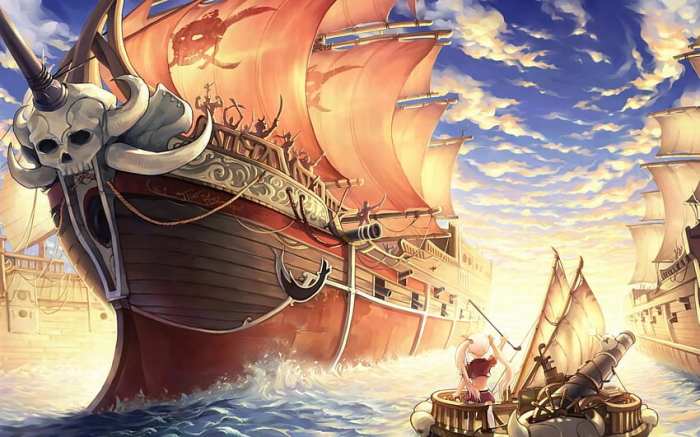Diablo Pirate Pays Up, a chilling tale of maritime lawlessness, unfolds on the treacherous seas. The Diablo Pirate, a notorious figure with a history of criminal activity, has issued a demand for payment, plunging those involved into a desperate struggle for survival and justice.
This narrative delves into the origins and motivations of the Diablo Pirate, shedding light on their past and the circumstances surrounding their demand. We will explore the consequences of their actions, the legal and ethical implications, and potential outcomes for all involved.
The Nature of the Pirate’s Payout: Diablo Pirate Pays Up

The pirate’s demand for payment stems from a complex web of events, fueled by a history of maritime disputes and a thirst for vengeance. The pirate, known as Captain Blackheart, has long held a grudge against a powerful merchant guild, accusing them of exploiting and defrauding sailors.
This grudge has simmered for years, culminating in a series of audacious attacks on the guild’s ships. Captain Blackheart’s demands for payment are not simply a matter of greed; they are a calculated attempt to extract retribution for past wrongs and ensure future protection for his crew.
The Amount and Value of the Payment, Diablo pirate pays up
The pirate’s demand for payment is not a specific sum of gold or silver, but rather a share of the merchant guild’s annual profits. Captain Blackheart has stipulated that he desires a percentage of the guild’s earnings, a figure that is believed to be substantial, given the guild’s vast wealth and influence.
The exact percentage demanded remains shrouded in secrecy, but it is rumored to be a significant portion of the guild’s income. This demand is not merely a financial gain for the pirate; it is a symbolic act of defiance, a declaration that he intends to take a piece of the guild’s power and wealth.
The Intended Recipient of the Payment
The intended recipient of the pirate’s payment is not a single individual but rather the entire crew of Captain Blackheart’s ship. The pirate’s demand for payment is not solely for his own benefit; he intends to share the spoils with his loyal crew, ensuring their financial security and solidifying their allegiance.
This distribution of wealth is a shrewd move on Captain Blackheart’s part, as it serves to motivate his crew and maintain their loyalty, ultimately bolstering his own power and influence. The pirate’s decision to share the payment with his crew demonstrates a sense of camaraderie and responsibility, further enhancing his image as a charismatic and capable leader.
The Diablo Pirate’s demand for payment raises critical questions about maritime law, ethical considerations, and the consequences of unchecked power. This case serves as a stark reminder of the fragility of peace on the high seas and the enduring need for justice in the face of lawlessness. The story of the Diablo Pirate is a compelling example of the ongoing battle between good and evil, highlighting the importance of navigating complex ethical dilemmas with unwavering resolve.
The Diablo pirate’s payment finally arrived, a hefty sum for the treasure he’d plundered. It reminded me of the iPhone SE, a device that, despite its familiar design, harkens back to the classic iPhone 5s, as detailed in this article on iphone se identical design iphone 5s. Just like the SE, the pirate’s payment was a classic, a reminder of simpler times, but with a modern twist.